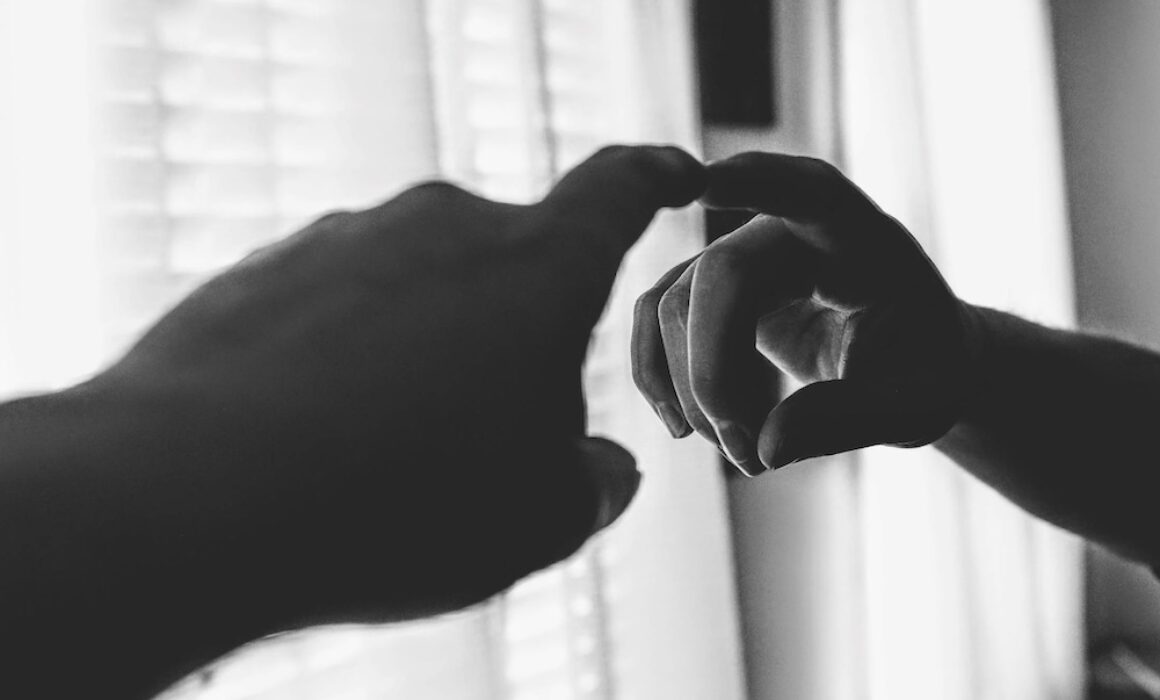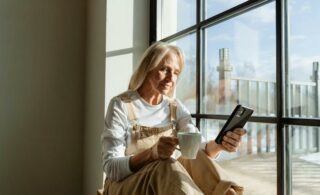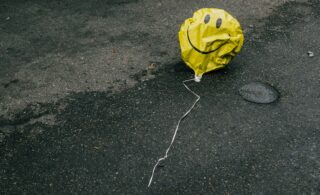
One of the most common post-treatment challenges for people who’ve had cancer is the loss of self confidence. In this article – the 12th of Dr Jane Clark’s series on navigating life after cancer – she looks at this issue with a particular reference to going on holiday. Dr Clark explains why you might be feeling this way and provides some advice for dealing with this challenge. Read on for Dr Clark’s insight and advice.
Regaining trust in yourself
This article is adapted by Dr Jane Clark from an article originally written by Jane and Dr Peter Harvey. See our introduction for a background on this series of articles.
Many people, from all walks of life, say that one of the most difficult consequences of cancer and its treatment is their loss of confidence. It seems to make no difference if you are a woman or a man, old or young, have a high-powered demanding job or are retired.
“I think my lack of confidence wasn’t obvious at first. But looking carefully, I definitely doubted myself and my body. I felt like I was just waiting for the rug to be pulled from beneath me. I didn’t look too far ahead, and it took a lot of ‘one day at a time’ to move on from those feelings.“
You can’t get confidence on prescription
Cancer is a great leveller in this, as in many other respects. Of course, one of the great problems with confidence is that no-one else can give it to you: you cannot get your doctor to write a prescription or buy it in a bottle from the supermarket.
You gain confidence and start to trust yourself again after cancer by doing things and developing your sense of self confidence – but how do you start when you are not confident enough? It’s very easy to get trapped in a self-defeating and immobilising loop from which there seems to be no escape. Exactly why this should happen is not entirely clear.
Feelings of being powerless and not in control
Part of it is probably due to the sense of uncontrollability and the experience of powerlessness that cancer and its treatment engenders. Another factor that will undoubtedly contribute is the sense that the world is not a safe place anymore – that you are vulnerable and at risk, is brought home to you with a terrible certainty.
This can manifest itself in a number of ways, but one that seems very powerful concerns holidays. Many people have the idea that what would be really nice at the end of treatment is a real holiday (pre-pandemic!). You or your relatives may plan to have a break very soon after treatment ends. But when it comes to it, when you have finished, perhaps the prospect doesn’t seem so attractive after all. For many people, the period immediately after treatment is marked by real feelings of vulnerability and of not wanting to stray too far from home or from the easy reach of medical and nursing care.
Making plans can become fraught with worry and difficulty
Apart from the tiredness and fatigue, the feeling of not being entirely safe is powerful – powerful enough to spoil a holiday or break. There is also the sense that you cannot afford to look too far into the future, that planning too far ahead brings its own worries and fears.
Your time horizon has been understandably limited to the next treatment, the next clinic appointment. You may have been living one day at a time. To switch suddenly to planning six months ahead seems to be a task too much.
The point at which you can look forward to and plan a holiday is a key milepost in your road to recovery. It doesn’t always happen quickly and often not as quickly you might like but happen it does.
One step at a time is the way to go
One way to manage this particular issue is to plan for short trips away – perhaps a couple of hours – to places you know and with which you are familiar. Once you can do that without too much anxiety, then perhaps a few trips for a bit longer – but not staying away from home overnight just yet.
When that is done to your satisfaction, you can plan to spend one night away – and not too far away – and so on, building up gradually, one a step at a time.
Set yourself easy goals that you know you can achieve
That model is the key to many aspects of the rehabilitation programme which will rebuild both physical and emotional strength – one step at a time. It is much better to set yourself an easy target which you know you can achieve and end up saying to yourself – ‘That was easy, I could have done more of that’ rather than going too far too fast and feeling that you have failed.
Breaking down all the tasks of living into easily manageable chunks – a step at a time – is a well tried and tested route to success (see also Moving Forward 10: Dealing with Fatigue).
It’s easy to forget how complex and difficult life can be
In our enthusiasm, we often forget just how complex and difficult this life business is, and it’s only when you have to get back on the roundabout that you realize this.
Sometimes living is like competing in an Olympic event – but because we take it so much for granted, we forget how demanding and tiring it can be, even at an ordinary, everyday level.
Build your life back up gently
Let’s take this analogy further and pretend that we are all Olympic sprinters who have had a serious injury (see also section on Fatigue). We would not consider getting back to running the 100 metres until we had fully recovered. We would put ourselves on a gentle retraining programme, beginning with gentle walks rather than sprints.
Getting back to living life should be done in the same way – a gentle build-up to the main event.
Dr Jane Clark, Consultant Clinical Psychologist
FURTHER INFORMATION
The next article in this series of articles explores how you may experience a lack of trust in the medical system and how to deal with this. You can read it here 13: Life After Breast Cancer: How to rebuild trust in a healthcare system.
If you’re looking for more support, Future Dreams hold a range of support groups, classes, workshops and events to help you and your carers during your breast cancer diagnosis. These are held both online and in person at the London-based Future Dreams House. To see what’s on offer and to book your place, see here.
To return to the homepage of our Information Hub, click here where you can access more helpful information, practical advice, personal stories and more.
This page was reviewed in April 2024 by the Future Dreams team.
The information and content provided in all guest articles is intended for information and educational purposes only and is not intended to substitute for professional medical advice. It is important that all personalised care decisions should be made by your medical team. Please contact your medical team for advice on anything covered in this article and/or in relation to your personal situation. Please note that unless otherwise stated, Future Dreams has no affiliation to the guest author of this article and he/she/they have not been paid to write this article. There may be alternative options/products/information available which we encourage you to research when making decisions about treatment and support. The content of this article was created by Dr Jane Clark, Consultant Clinical Psychologist and we accept no responsibility for the accuracy or otherwise of the contents of this article.
©️ 2023 Jane Clark and Peter Harvey. With quotes from the creators of the Ticking off Breast Cancer website (now Future Dreams Information Hub). All rights reserved.
Share

Support awareness research
Donate to those touched by BREAST cancer
Sylvie and Danielle began Future Dreams with just £100 in 2008. They believed nobody should face breast cancer alone. Their legacy lives on in Future Dreams House. We couldn’t continue to fund support services for those touched by breast cancer, raise awareness of breast cancer and promote early diagnosis and advance research into secondary breast cancer without your help. Please consider partnering with us or making a donation.



